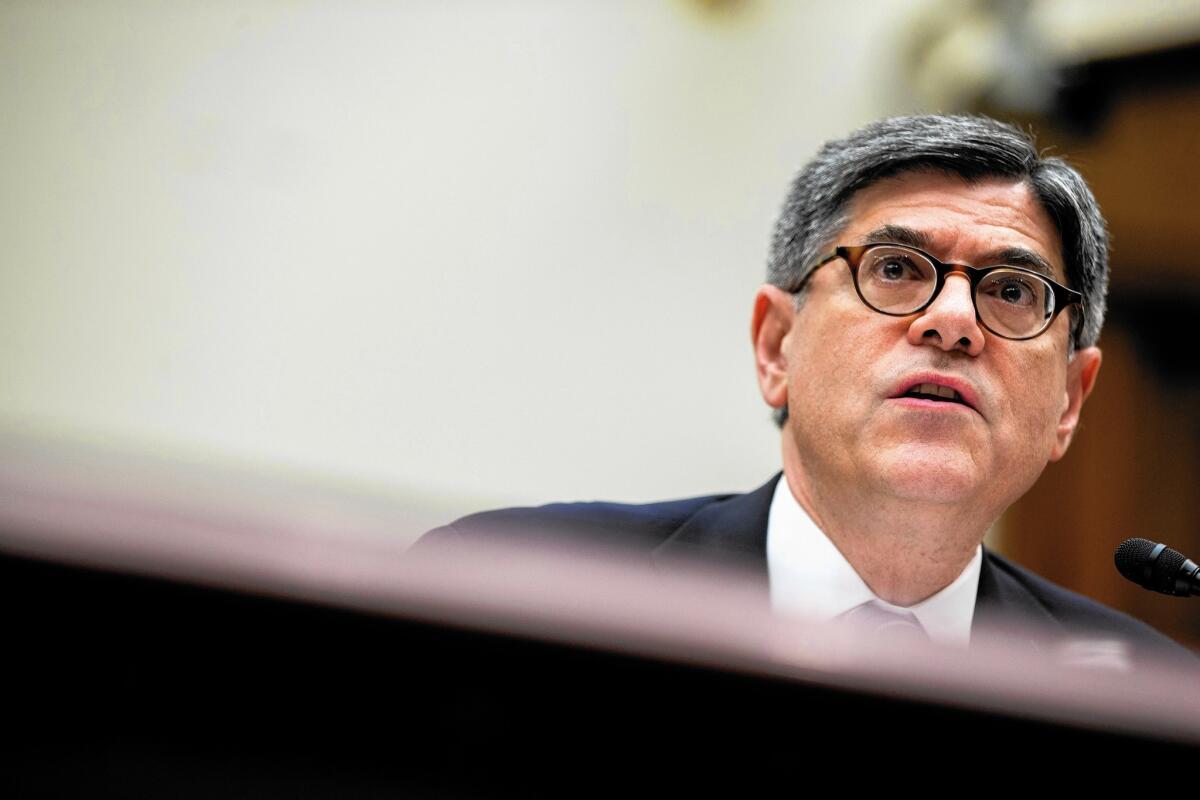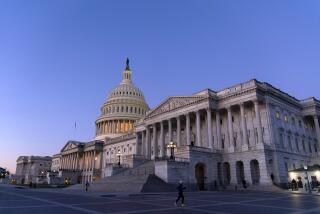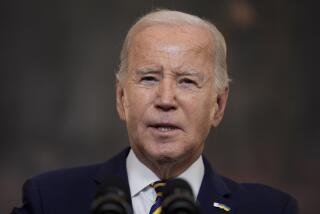Export-Import Bank is dealt a blow as it is excluded from highway bill

The effort to reopen the Export-Import Bank, which has helped thousands of U.S. companies export their goods, lost significant ground as House lawmakers approved a short-term highway funding bill that did not include new authority for the bank.
Supporters of the bank, including President Obama, bipartisan majorities in the House and Senate as well as leading business groups, had hoped to attach a measure reauthorizing the bank’s charter to the highway bill.
That effort failed this week in the face of stiff opposition from House Republican leaders, who have called the bank a dispenser of corporate welfare.
The bank, which has lacked new authority to operate since the end of June, will remain unable to offer new loans and other assistance at least through the end of the summer as House members prepared to leave Wednesday for a lengthy recess.
“Not only is the GOP leaving behind the unfinished business of the bank, it’s leaving behind American workers, American businesses, American competitiveness and the American economy,” said Rep. Maxine Waters (D-Los Angeles), a major bank advocate.
Business leaders were outraged.
“It is irresponsible to think that we can boost job growth while tying one hand behind the backs of exporters and manufacturers,” said Exporters for Ex-Im Coalition, an advocacy group. “This dangerous practice of putting politics before policy will result in job losses, for which members of Congress will be held accountable.”
Randy Barsalou, who owns BCH Trading Co. in Hot Springs, Ark., said he was in “disbelief” that Congress was leaving for summer break without a reauthorization vote.
“We use the program daily in tandem with our commercial bank, and it is absolutely vital to our existence given that 100% of our sales are exports,” he said.
Late last month, House Republican leaders, urged on by conservative members and tea party groups, blocked votes on bills to extend the bank’s authority.
Opponents said the bank was an example of crony capitalism and mostly helps large companies, such as Boeing Co., that don’t need government-backed assistance.
“The bank’s expiration was the culmination of a three-year effort waged by conservatives against a vast, well-funded network of consultants, lobbyists and big-government interest groups,” said Michael Needham, chief executive of Heritage Action for America, a conservative group that has helped lead opposition to the bank.
Needham urged GOP leaders to “preserve this historic policy victory.”
The Senate voted 64 to 29 on Monday to attach a five-year reauthorization of the bank to its version of a highway funding bill. But House leaders balked.
On Wednesday, the House voted 385 to 34 to approve a three-month extension of highway funding, without a provision reauthorizing the bank. The Senate is expected to follow suit Thursday.
A last-minute compromise averted an immediate crisis that could have shut down transportation projects nationwide after Friday, when funding authorization expires.
Even so, the temporary nature of the deal sets up another potential stalemate in October because Congress has no long-term solution for funding highway projects.
The highway fund has run into trouble because the 18-cent-a-gallon federal gas tax, which provides much of the program’s revenue, has not kept pace with construction costs and inflation. The tax hasn’t been raised since 1993.
To keep the fund operating, Congress is approving $8 billion to continue transportation projects through Oct. 29, largely paid with a mishmash of revenue from various federal sources.
Reaching a long-term highway funding solution has been difficult because the House and the Senate, both controlled by Republican majorities, have different approaches.
As part of the short-term deal, Congress also included a provision to help the Department of Veterans Affairs avoid closing healthcare clinics amid its own budget shortfall.
Lost in the deal-making, though, was the effort to save the Export-Import Bank.
Backers said the bank is crucial to helping many companies sell their products abroad. It allows Boeing and its vast supply chain of mostly small companies as well as other U.S. exporters to compete against foreign firms that get similar assistance from their governments.
“It is a profound mistake to allow the Export-Import Bank to remain without lending capacity,” Treasury Secretary Jacob J. Lew told reporters Wednesday at a breakfast sponsored by the Christian Science Monitor. “What it means is our businesses ... are competing on unfair terms with foreign competitors.”
The bank provided $20.5 billion in assistance last year that financed $27.5 billion worth of U.S. exports. The bank, which is funded by interest and fees, received no government funding. Last year, it sent $675 million in profits to the U.S. Treasury.
Opponents noted that the government is on the hook for any losses the bank can’t cover on about $122 billion in outstanding assistance.
Chris Krueger, a policy analyst at financial services firm Guggenheim Partners, said reauthorizing the bank is challenging, though it “remains a question of when it reopens, not if.” That approval might not come until closer to the end of the year, he said.








